Culture
The Island of Thousand Temples
16/12/10
Bali is the most significant among the few remaining
pockets of predominantly Hindu areas in Indonesia
after the fall of the Hindu Kingdom of Majapahit in the
early 16th century. The Balinese Hinduism is
unique and an integral part of the Balinese
culture and everyday life of the people. Bali
boasts several stunning temples (pura) built on
some of the most picturesque sites on the
island.
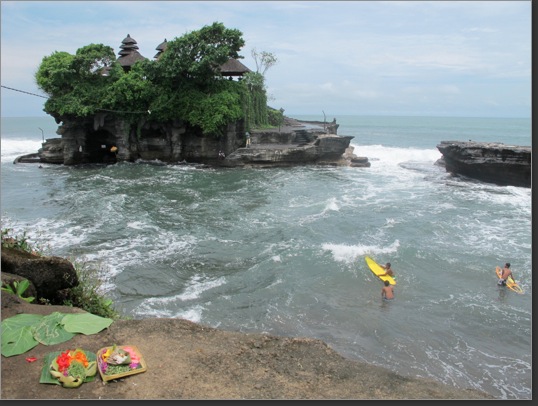
Canang sari offerings, Pura Tanah Lot and surfers
(10/2010)
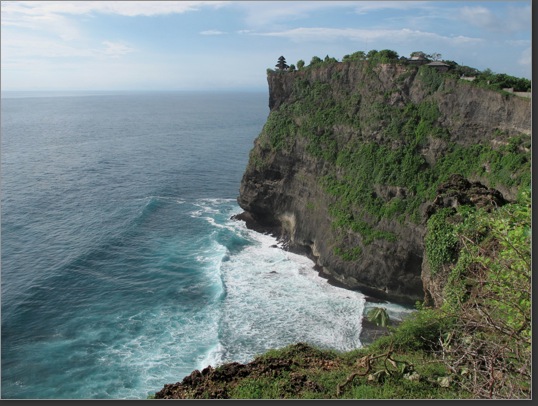
Pura Luhur on top of a cliff at
Uluwatu (10/2010)
CLICK HERE FOR MORE PICTURES OF
BALI
Related links:
Folk Dance in Bunad
21/09/10
Bunad is the traditional costume
in Norway. You won’t miss it if you happen to
visit the country on May 17 (Kiat’sEyeView:SyttendeMai)
when it is popularly worn for the national day
celebration. Needless to say, bunad is naturally
the costume of choice in traditional cultural
event such as folk dancing. Shown here are my
picture and video documentations of the midsummer day (23 June)
performance in front of the Norwegian Parliament
(Stortinget) in 2007.
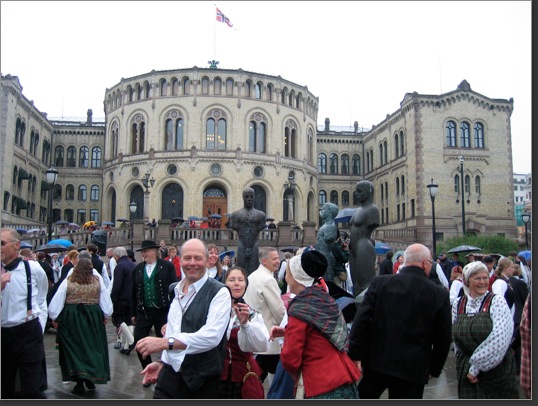
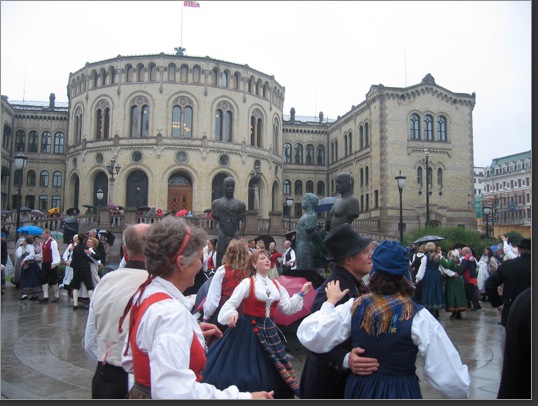
Related links:
- RennyBA’s Terella: Folk Dance
in Bunad from Norway
- My Little Norway: Bunad - Norwegian Traditional Costumes
The Batak People and Culture
29/04/09
Horas! Welcome to the Batak heartland that
centres on Samosir Island and covers the surrounding
areas of Lake Toba. Sites of cultural and historical
significance to the Batak people can be found on the
island at places such as Tomok, Ambarita and
Simanindo (see Lake Toba Album).
Batak houses, with distinctive saddle-shaped,
twin-peaked roofs, are eye-catching and
unmissable. They can be found all over Samasir
Island in all shapes and sizes, from
elaborately decorated traditional houses
preserved in museums to practical zinc-roofed
village houses or resort cottages by the
shoreline.
The following excerpt from Sumatra-Indonesia.com gives some ideas on the Batak architecture and symbolism built into the design:
"The roofs of the house are designed so the back of the roof in higher than the front. The father of the house always sleeps at the front of the house and the children in the back. The higher roof in the back signifies that the father wants his children to reach higher in life than himself. The steps leading up to the small entrance are always atleast 4, 5 or 6 to signify how many children the family wants to have. The small entrance into a Batak house are designed so you have to bow down to enter the house paying respect to the people inside the house."
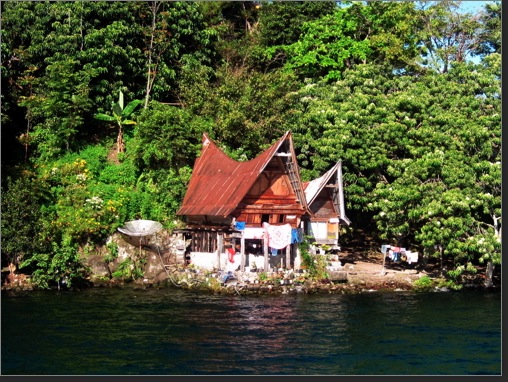
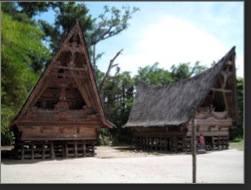
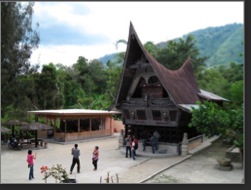
Batak culture is also known to be rich in customs and rituals. This 53-sec video clip, taken at the Museum Huta Bolon Simanindo, aims to give a sample of traditional Batak dance. The performance (Mon-Sat 10.30-11.10, 11.45-12.30; Sun 11.45-12.30) is not to be missed by culturally inclined visitors to Samosir, Lake Toba.
CLICK HERE FOR MORE PICTURES
Related links:
The following excerpt from Sumatra-Indonesia.com gives some ideas on the Batak architecture and symbolism built into the design:
"The roofs of the house are designed so the back of the roof in higher than the front. The father of the house always sleeps at the front of the house and the children in the back. The higher roof in the back signifies that the father wants his children to reach higher in life than himself. The steps leading up to the small entrance are always atleast 4, 5 or 6 to signify how many children the family wants to have. The small entrance into a Batak house are designed so you have to bow down to enter the house paying respect to the people inside the house."



Batak culture is also known to be rich in customs and rituals. This 53-sec video clip, taken at the Museum Huta Bolon Simanindo, aims to give a sample of traditional Batak dance. The performance (Mon-Sat 10.30-11.10, 11.45-12.30; Sun 11.45-12.30) is not to be missed by culturally inclined visitors to Samosir, Lake Toba.
CLICK HERE FOR MORE PICTURES
Related links:
-
Kiat's Eye View:
The Route to Samosir
-
Kiat's Eye View:
Samosir Island and Lake Toba
- Wikipedia: Batak (Indonesia)
- The New York Times: In the
Land of Batak
- Blogspot/ Frienster: Museum Huta Bolon, Simanindo
Tartan and Kilt
11/08/07
Away from the tropics, Kiat is currently in the
Land of Tartan and Kilt,
pursuing knowledge, broadening his horizons and
learning about haggis, whisky and Irn-Bru. No, he still has not
learnt how to play a bagpipe :-P
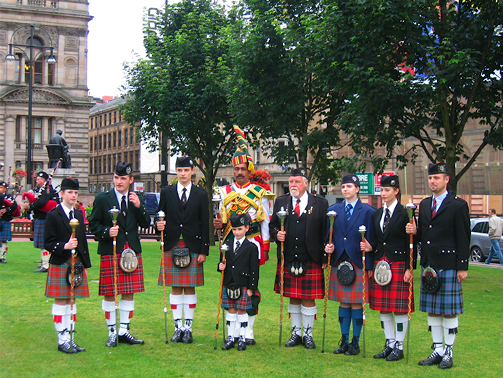
Participants posing at George Square, Glasgow for the Glasgow International Piping Festival (10/08/07)

Participants posing at George Square, Glasgow for the Glasgow International Piping Festival (10/08/07)




